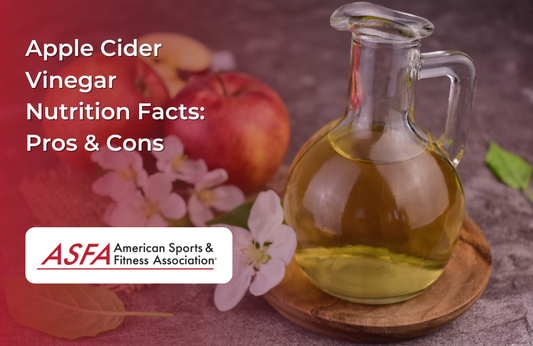A fat burner is a supplement or natural compound designed to increase metabolism, enhance fat oxidation, and support weight loss. Fat burners work by stimulating energy expenditure, appetite control, and thermogenesis, but their effectiveness depends on lifestyle, diet, and exercise habits.
Fat burners, also known as fat burner supplements, typically function through several mechanisms:
What are Fat Burners?
Definition and Purpose
Fat burners are dietary supplements designed to aid in weight loss by enhancing the body’s ability to burn fat. They work through various mechanisms, such as increasing metabolism, reducing fat absorption, and suppressing appetite. These supplements are particularly popular among athletes and individuals striving to achieve their weight loss goals. Fat burners work by one or a combination of methods, including boosting heat production (thermogenesis), curbing hunger, blocking fat absorption, or enhancing fat metabolism. While they can be a valuable addition to a weight loss regimen, it’s crucial to remember that fat burners are not a magic solution. They should be used alongside a healthy diet and regular exercise to be truly effective.
Increasing Metabolism (Thermogenesis)
Some fat burners raise body temperature and energy expenditure, leading to more calories burned.
Common thermogenic ingredients include caffeine, green tea extract, and cayenne pepper. Thermogenic ingredients like caffeine and green tea extract not only boost metabolism but also promote weight loss by increasing calorie burning.
Enhancing Fat Oxidation
Certain compounds help the body break down stored fat for energy.
Examples include L-carnitine and green tea polyphenols, which improve fat utilization. By improving fat utilization, these compounds support the body's natural process of burning fat for energy.
Reducing Appetite
-
Some fat burners help suppress hunger and cravings, making it easier to maintain a calorie deficit.
-
Ingredients like fiber, protein, and 5-HTP support satiety.
Blocking Fat Absorption
-
Some contain compounds that inhibit fat digestion, reducing calorie absorption from dietary fats.
-
Examples include soluble fiber and chitosan.
Key Ingredients in Fat Burners
Stimulants and Fat Burning Activators
Fat burners often contain a blend of ingredients that work synergistically to promote fat loss. Some of the most common and effective ingredients include:
-
Caffeine: A well-known stimulant that increases alertness and boosts metabolism, helping the body burn more calories.
-
Green Tea Extract: Rich in catechins, green tea extract can enhance fat burning and improve metabolic rate, making it a popular choice in fat burning supplements.
-
Conjugated Linoleic Acid (CLA): This fatty acid is known for its ability to reduce body fat and increase lean muscle mass, aiding in overall weight loss.
-
L-Carnitine: An amino acid that plays a crucial role in transporting fatty acids to the mitochondria, where they are burned for energy, thus supporting fat metabolism.
-
Yohimbine: A stimulant that can increase fat burning and enhance athletic performance, making it a common ingredient in fat burners.
These ingredients work together to increase fat burning, enhance metabolism, and suppress appetite, making it easier to lose weight and achieve your weight loss goals.
Do Fat Burners Work?
Fat burners are a type of dietary supplement designed to aid in weight loss by enhancing the body’s ability to burn fat. These supplements interact with fat cells to enhance the release of fatty acids into the bloodstream, supporting weight loss efforts. Fat burners can aid weight loss when combined with a calorie-controlled diet and exercise, but they are not a magic solution. Key considerations:
-
Effectiveness varies – Some ingredients have scientific backing, while others lack strong evidence.
-
Works best with exercise – Fat burners enhance energy use, but diet and activity remain the most important factors.
-
Temporary effects – Metabolism-boosting effects may decline over time as the body adapts.
Best Natural Fat Burners
Instead of relying on supplements, certain foods and habits naturally enhance fat loss:
-
Caffeine (coffee, green tea) – Boosts metabolism and fat oxidation.
-
Protein-rich foods – Increase satiety and thermogenesis.
-
Healthy fats (avocados, nuts, fish) – Support hormone function and fat burning.
-
Fiber-rich foods (vegetables, whole grains) – Improve digestion and appetite control.
-
Strength training & HIIT – Help preserve muscle while burning fat.
Potential Side Effects of Fat Burners
-
Increased heart rate and jitters (from caffeine-based supplements).
-
Digestive discomfort (from appetite suppressants or fiber-based burners).
-
Sleep disturbances (if taken too close to bedtime).
-
Dependency risk (overuse may reduce effectiveness over time).
Who Should Avoid Fat Burners?
Certain Medical Conditions
While fat burners can be a helpful addition to a weight loss regimen, they are not suitable for everyone. Certain individuals should avoid using fat burners due to potential health risks, including:
-
Individuals with High Blood Pressure: Fat burners can increase blood pressure, posing a risk for those with pre-existing hypertension.
-
Individuals with Heart Problems: The stimulants in fat burners can elevate heart rate and blood pressure, which can be dangerous for those with heart conditions.
-
Individuals with Anxiety or Depression: Fat burners can exacerbate symptoms of anxiety and depression, making them unsuitable for individuals with these conditions.
-
Individuals with Certain Medical Conditions: Those with diabetes, kidney disease, or liver disease should avoid fat burners as they can interact with medications or worsen underlying health issues.
It’s essential to consult with a healthcare professional before starting any new supplement, including fat burners, especially if you have any underlying medical conditions or concerns.
Conclusion
Fat burners can support fat loss by increasing metabolism, reducing appetite, and promoting fat oxidation. However, they are not a substitute for proper nutrition and exercise. The most effective approach to fat loss remains a calorie deficit, regular strength training, and a well-balanced diet.
FAQs
Do fat burners help with weight loss?
They can aid weight loss, but results depend on diet and exercise consistency.
Are fat burners safe?
Most natural fat burners are safe in moderation, but stimulant-based options may cause side effects.
Do fat burners work without exercise?
They may increase calorie burn, but exercise is essential for optimal results.
How long do fat burners take to work?
Effects vary, but most thermogenic ingredients work within hours, while long-term fat loss requires weeks to months.
Can I take fat burners every day?
It depends on the type—stimulant-based burners may lose effectiveness over time, requiring cycling or breaks to maintain their impact.





